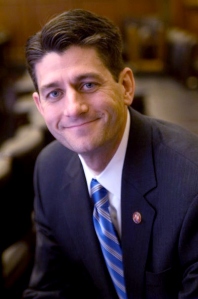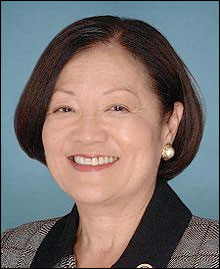With most of the primary season now behind us and all of the Senate match-ups in place, sans Arizona and Wyoming, it’s time to examine the national outlook.
After seeing several competitive primaries decided in the past several weeks, we now sit on the cusp of the final short sprint to Election Day with Senate control still considered to be in “toss-up” mode. As we know, 33 Senate races are standing for election in November with 11 of those seats being open due to retirement and defeat, thus giving more conversion opportunities for each side. Of the 33 Senate races, a little under half of them are considered safe for the respective incumbent and, according to our count, six of the races are rated as toss-ups (Ind., Mass., Mo., Mont., Va., and Wis.).
If the Democrats were to win all of the “lean Dem” and toss-up races, and Independent former governor Angus King clinches the Maine race and decides to caucus with them, the Senate Democrats would actually add a net of three seats to their conference, bringing the total majority number to 56. Early in the election cycle it looked extremely unlikely that the Democrats would pick up any seats, however, as this year has unfolded, more Republican-held seats have come into play and some of the Democratic seats initially thought to be potentially vulnerable like Connecticut, Washington, and Pennsylvania are all trending more solidly leftward. Democrats also are in much better shape in North Dakota, as former attorney general Heidi Heitkamp continues to perform well against at-large Rep. Rick Berg (R), who began the race as a big favorite.
Conversely, if Republicans sweep the toss-ups and “lean R” races they would have a net gain of eight seats, bringing their total to 55 seats, even if King wins and caucuses with the Democrats. Thus, 56D to 55R appear to be the extreme swing parameters for the two parties.
While most political pundits still can’t say with any certainty who is going to control the Senate come January, it is becoming obvious that the ratio will be close. Neither party has so far broken out with the kind of drive to create a sweep, and several other campaigns have unfolded differently than originally predicted. It seems when one party makes a gain or falls behind, the other experiences a similar action, thus keeping the balance between the two in check.
For example, the political climate has become better for Republican candidates in Nebraska and Florida, while Democrats are approaching lock-down positions in Connecticut and Washington.
In the Cornhusker State we see that former senator Bob Kerrey’s return to politics after a 12-year absence while living in New York City has not been well received. GOP nominee Deb Fischer consistently holds polling leads that exceed the 18-20 point range. The best poll, from a Nebraska Democratic perspective, is the June Garin Hart Yang survey that put Kerrey within 12 points of his Republican opponent.
Turning to the Sunshine State, two-term incumbent Sen. Bill Nelson, who has a substantial campaign resource advantage over his new official Republican opponent, Rep. Connie Mack IV (R-FL-14), fresh from his solid primary victory earlier in the week, has failed to establish a firm lead. Polling consistently shows this race moving much closer to toss-up status, and while Sen. Nelson maintains a slight advantage, his edge is minimal and this campaign is quickly becoming as hot as a typical Florida summer.
In Connecticut earlier this week, GOP primary voters, by an overwhelming 73-27 percent margin, again fielded their losing 2010 candidate, former wrestling company executive Linda McMahon, this time to compete against newly nominated Rep. Chris Murphy (D-CT-5). The two are vying for retiring Sen. Joe Lieberman’s open seat. In recent polling, Murphy has opened up a strong lead when paired against McMahon. Former Rep. Chris Shays (R-CT-4) consistently polled better in general election match-ups with Murphy, but he fared poorly in his nomination battle. With President Obama sure to run well in Connecticut and thus setting the tone for the entire Nutmeg State Democratic ticket, Rep. Murphy has established himself as the clear front-runner. Seeing him fall would now be considered a major upset.
Sen. Maria Cantwell, who serves the Evergreen State of Washington, has historically not been the most popular of incumbents. Her re-election prospects have improved considerably, however, since drawing a second-tier opponent in the person of state Sen. Michael Baumgartner. The senator placed almost 26 percentage points ahead of Baumgartner in the jungle primary earlier this month. While Washington originally had the potential of becoming a competitive race, Sen. Cantwell has considerably strengthened her position and this contest is virtually out of reach for the GOP.
As Election Day draws nearer, we continue to see a Senate that is still very much in play for both parties. Right now, it appears the Democrats are safe, likely, or lean winners in 18 states, while Republicans have that same status in nine. This means the Democrats are hovering around the 48 mark and the GOP is closer to 46. Of the six toss-ups, Democrats currently hold four states and Republicans two. Remember, Democrats must defend 23 of the in-cycle seats versus just 10 for their counterparts.






